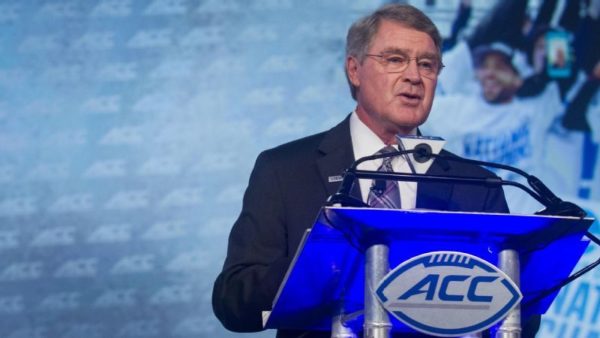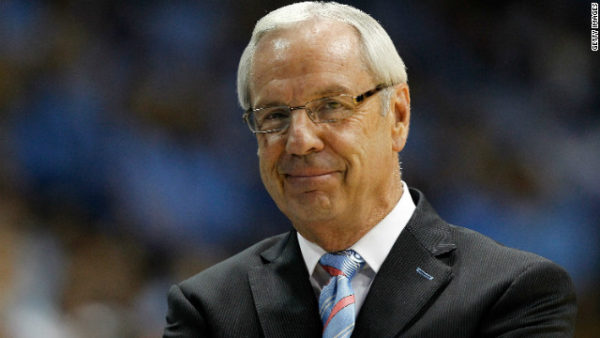Reviewing Four ACC Offseason Storylines
Posted by Brad Jenkins (@bradjenk) on October 11th, 2016We are now fewer than five weeks away from opening night in college basketball, so it’s time to start our preseason coverage here at the ACC microsite. After a record-setting NCAA Tournament performance last March, many pundits have tabbed the ACC as even more competitive this year, with hopes of challenging the record for most NCAA Tournament bids in a single season (Big East, 11 bids, 2011). Over the next several weeks we will preview the fortunes of all 15 ACC schools by projecting how each squad will maximize its strengths and mitigate its weaknesses, and we will also be reporting from ACC Operation Basketball in Charlotte on October 26. But first, let’s catch up on several of the most important storylines in the ACC since Kris Jenkins’ buzzer-beater toppled North Carolina on Championship Monday night back in April.

ACC Commissioner John Swofford had a pair of major announcements during the offseason.
(Jeremy Brevard/USA TODAY Sports)
NCAA/ACC Take Stands
Perhaps the most interesting offseason news had more to do with politics than basketball. Ever since the North Carolina legislature passed the controversial HB2 law last March, the state has suffered backlash in the form of outside businesses and entertainers boycotting the state. It was only a matter of time before the NCAA and ACC followed suit. Both entities were probably holding out hope that state politicians would repeal the law before time necessitated action, but it appears that no changes are imminent. On September 12, as a result, the NCAA announced that it was removing all of its postseason events from North Carolina, including this season’s NCAA Tournament First and Second Round scheduled for Greensboro. The NCAA recently awarded that site to Greenville, South Carolina — the first time an NCAA Tournament will be held in the Palmetto State since 2002. South Carolina had previously been the state on the NCAA’s naughty list over its confederate flag flying on the capitol grounds in Columbia, but that ban was lifted last year after its removal. Just two days after the NCAA’s September announcement, ACC Commissioner John Swofford made his own statement that the ACC would also be moving its championship events out of North Carolina. The ACC Tournament was already set to begin a two-year run in Brooklyn this season, but future scheduled sites for the event include Greensboro and Charlotte. In the near-term, the NCAA’s stance is the most important. North Carolina has been a frequent spot for early round games over the years, providing a nice home court advantage for local ACC schools — most notably, Duke and North Carolina.
ACC Network Coming
Swofford had a much more pleasant announcement for league fans in July when he revealed that the much-anticipated ACC TV Network will launch in two upcoming phases. The league will initially use its digital platform to live-stream events through ESPN’s online portal, as soon as this season. The long-term plan is for a dedicated television channel devoted completely to ACC sports to be ready by August 2019. Since the new network will require a greater inventory of live events, league partner ESPN convinced the ACC to commit to a 20-game conference basketball schedule, beginning with the 2018-19 campaign. It will be interesting to see how league members adjust (i.e., tone down) their non-conference schedules in the new setup — look for marquee match-ups with other power conference opponents to be mostly restricted to the exempt tournaments and the ACC/Big Ten Challenge.

It’s looking increasingly likely that Roy Williams’ North Carolina basketball program will dodge major NCAA penalties. (Getty Images)
Continuing NCAA Investigations
North Carolina and Louisville played last season with NCAA investigations looming overhead, and that distraction appears likely to continue into this year’s campaign. Still, there is some evidence that the Tar Heels’ long and winding case may actually be approaching a conclusion. In late April, the NCAA gave the school an amended notice of allegations that appeared to back off previous charges against specific major sports programs. That men’s basketball was not specifically mentioned in the amended notice has many believing that Roy Williams’ program will completely avoid NCAA sanctions, despite the established fact that basketball players were frequent attendees of the fraudulent classes. Perhaps the only remaining hope for those wanting to see North Carolina punished lies with the dreaded ‘lack of institutional control’ charge that remained part of the amended notice. But the school brazenly contested the NCAA’s jurisdiction in the case in its response made public in August, so nobody really knows what is likely to happen. Later this month North Carolina will attend a procedural hearing with the NCAA Committee on Infractions where the two sides will discuss things, but we are probably still months away from knowing if any penalties will be assessed.
On the other hand, there hasn’t been any new information released about the Louisville stripper party scandal, as that investigation remains ongoing. Head coach Rick Pitino recently stated that he feels like the Cardinals’ self-imposed sanctions — which included no postseason play last year, limited recruiting visits and scholarship reductions — should be enough to satisfy the crime. There is no current word on when the NCAA will decide if it agrees with the Louisville coach’s opinion on the matter.
Late Roster Changes
Every offseason features significant transfers in and out of the league, and this year is no different. As a reminder, the ACC lost six underclassmen to the professional ranks: Brandon Ingram (Duke), Malik Beasley (Florida State), Chinanu Onuaku (Louisville), Cat Barber (N.C. State), Demetrius Jackson (Notre Dame), and Malachi Richardson (Syracuse). Some notable transfers out of the ACC include Derryck Thornton (Duke), James Palmer (Miami), Jalen Hudson (Virginia Tech), and the Martin twins – Caleb and Cody (NC State). Some of those schools that had major roster defections did a nice job of restocking the talent shelves. Syracuse added two of the nation’s most acclaimed graduate transfers in John Gillon (Colorado State) and Andrew White (Nebraska) while Duke and N.C. State added potential NBA big men with incoming freshman signees. Marques Bolden chose the Blue Devils over Kentucky, solidifying Duke’s frontcourt for the upcoming season; and Mark Gottfried inked highly regarded Turkish center Omer Yurtseven, who if cleared by the NCAA, will be a huge boost to the Wolfpack’s chances of getting back to the Big Dance.










































